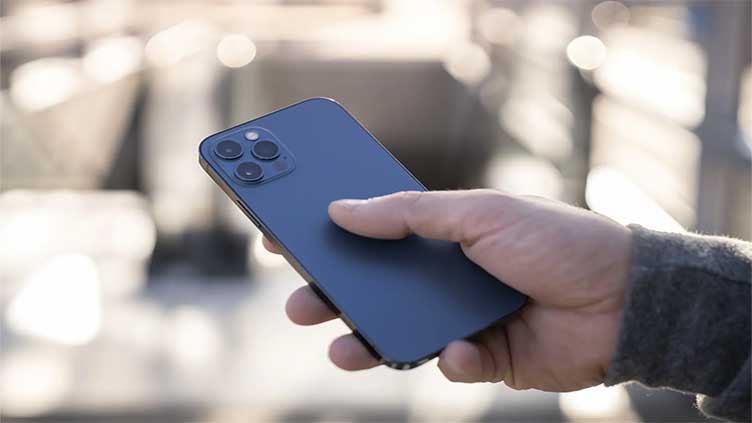New Apple feature could stop iPhone thieves from ruining your life

Technology
The feature will add extra security to sensitive account and device activities
(Web Desk) - A software feature currently in beta testing will lock down sensitive actions on your phone.
Apple wants to make it harder for a thief to ruin your life after stealing your iPhone.
The tech giant announced that it is testing out a feature called Stolen Device Protection in the newest beta version of its iOS operating system.
The feature will add extra security to sensitive account and device activities — like erasing a phone or resetting its passcode — if the phone isn’t at a trusted location such as a home or office.
Apple hopes the new feature will diminish the consequences of phone thefts in which criminals either watch people type in their passwords and then steal their devices or steal the devices and force their owners to unlock them, often at gunpoint.
Smartphone theft is a major problem — especially in large cities.
Thieves in London stole more than 90,000 phones in 2022, a staggering figure that amounted to one theft every six minutes, according to police.
Nearly 40% of all robberies in London last year resulted in a phone theft. And in the U.S., San Francisco residents, for instance, have complained about a similar rise in phone thefts this year.
Some phone robberies turn into “bank jackings,” in which thieves use a stolen phone’s money-transfer apps to send funds to themselves, potentially costing victims thousands of dollars.
Apple’s new Stolen Device Protection feature will work in two ways.
Some of the protected activities — including erasing the phone, using stored passwords or credit cards, applying for a new Apple credit card or viewing an existing card and turning off Lost Mode — will require immediate biometric authentication in the form of a face or fingerprint scan, while even more sensitive activities — changing the Apple account password or other account security settings, changing the phone’s passcode, adding a trusted fingerprint or face and turning off the Find My emergency feature — will require an hour-long wait followed by biometric authentication.
The security delay for adding a trusted fingerprint is aimed at preventing the scenario where a thief steals a phone and immediately forces its owner to add the thief’s fingerprint to the device.
Apple will recommend that people testing the upcoming iOS 17.3 beta enable the feature, and it will display the same recommendation when the protection debuts in the final version.
Stolen Device Protection joins a collection of Apple security features designed for a variety of potential risks.
The company previously created Lockdown Mode to prevent sophisticated cyberattacks that governments commonly use to spy on high-risk populations like journalists and activists.
Stolen Device Protection is aimed at a more common problem affecting a wider range of users.


